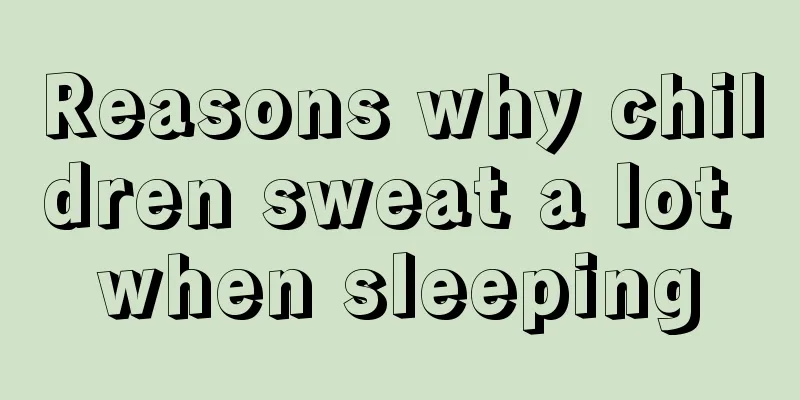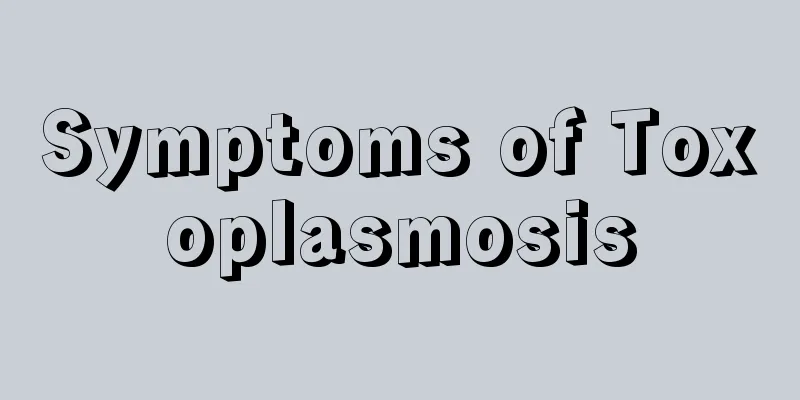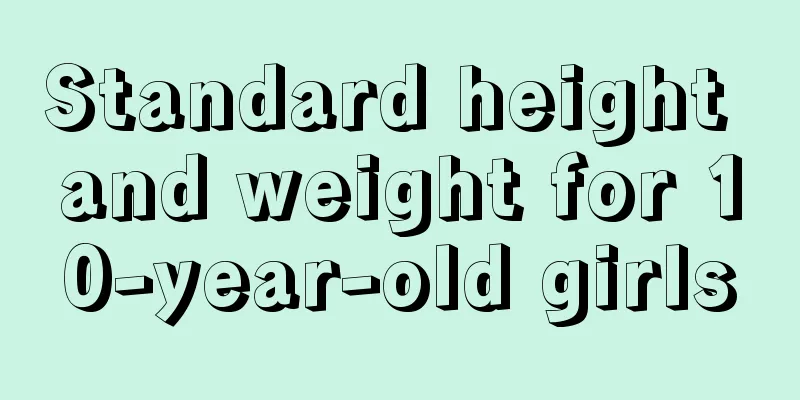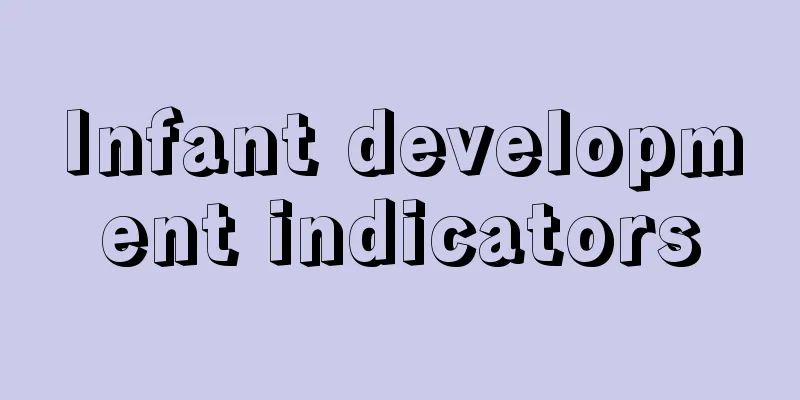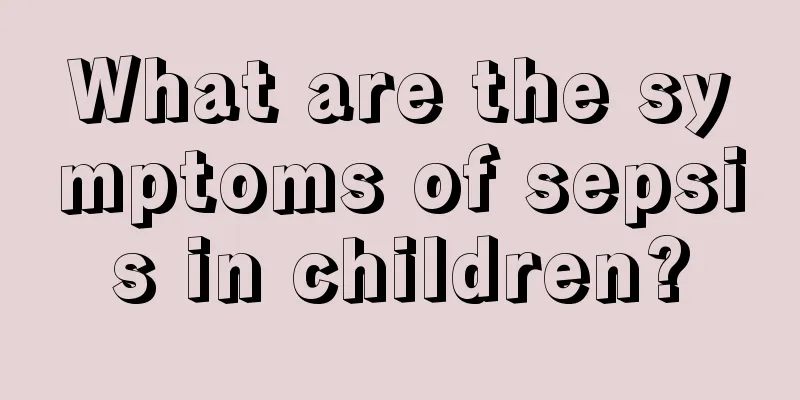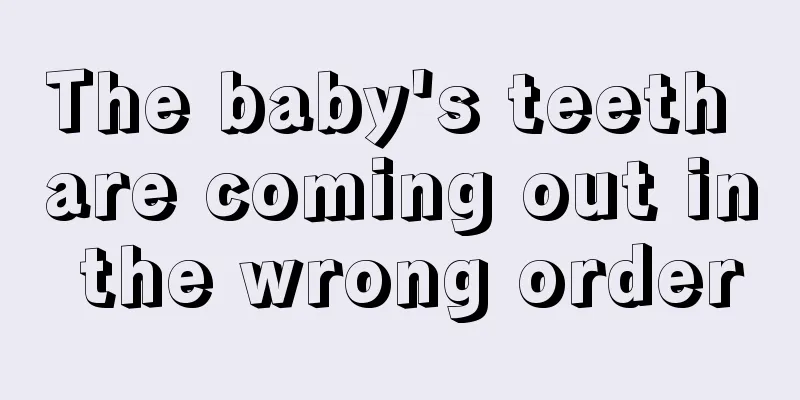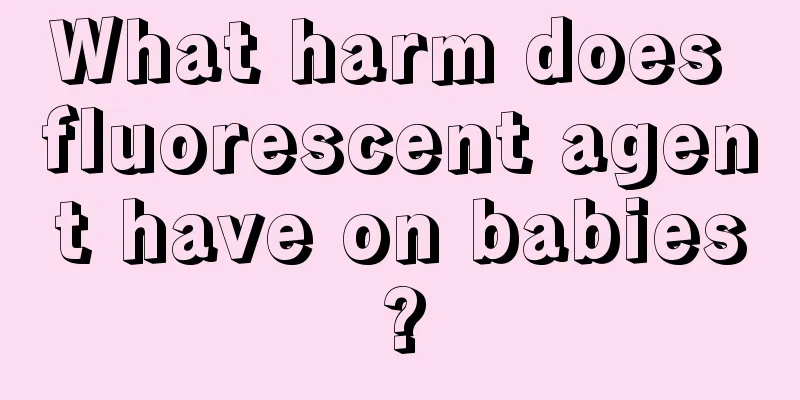How to prevent baby from having fever and convulsions
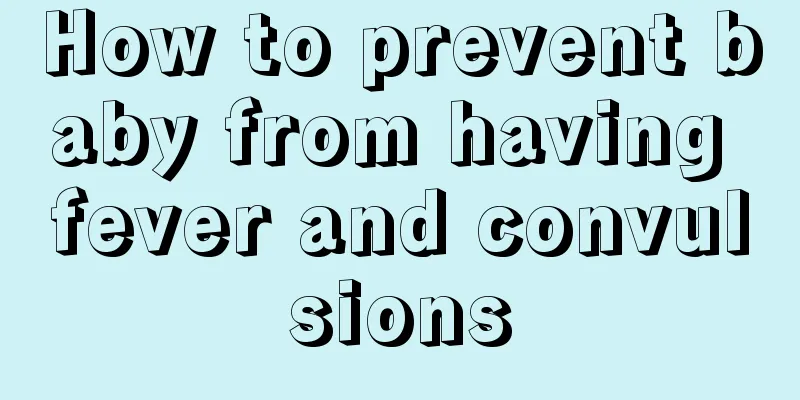
|
Many parents are at a loss as to what to do when their baby has a fever and convulsions. On the one hand, they are very worried, and on the other hand, they are panicked and don't know what to do. In fact, convulsions after a baby has a high fever are called convulsions. In severe cases, it mainly affects the function of the nervous system. However, different fever convulsions have different phenomena and different prevention methods. So how do you prevent your baby from having a fever and convulsions? Let's analyze it together below. If convulsions occur only after fever and the fever is high, it is likely to be a febrile convulsion. Febrile convulsions are generally more common in children under 2 years old and rarely seen after 5 years old. They are mainly caused by incomplete development of the nervous system. Convulsions usually occur within 24 hours of the onset of fever, and are often manifested as large convulsions throughout the body. After convulsions occur, do not panic. Generally, you only need to give strong stimulation, such as pinching the base of the thumb and philtrum, to keep the airway normal to prevent suffocation caused by accidental inhalation of vomit, and then rush to the nearest clinic, hospital or call 120. Generally, after a child has had a convulsion, the chance of having a fever convulsion in the future is higher than that of other children. In this case, the home should be equipped with a thermometer and antipyretics (ibuprofen, Benadryl, Bami, Motrin, Nimesulide, etc.) for a long time. If there is a history of more than 2-3 convulsions, the home should also be equipped with Lumina. If the body temperature is above 38°C, antipyretics and Lumina should be taken. After having a fever, do not cover yourself up, wear less clothes, and take physical cooling measures, such as covering your forehead with a cold towel, wiping your neck, armpits, groin and other parts, and then go to the hospital for treatment. If there is a fall or trauma before the convulsion, the possibility of intracranial hemorrhage should be considered; if the convulsion is accompanied by vomiting and poor spirits, the possibility of encephalitis should be considered; if it is accompanied by vomiting, diarrhea, and bloody stools, the possibility of bacterial dysentery complicated by toxic encephalopathy should be considered; if the vomiting and diarrhea are severe, the possibility of dehydration, electrolyte imbalance, and acidosis should be considered; if the convulsion is local and then develops into systemic, or if the convulsion is repeated, the possibility of brain maldevelopment and epilepsy should be considered, and hospitalization for observation is required. In fact, if the baby has a fever and convulsions, it is just simple convulsions 1-2 times, which will not have any impact on the future. However, if the convulsions occur frequently, high fever convulsions may develop into epilepsy, which requires long-term medication and has a certain impact on intelligence. As parents, you must pay attention to this. If the baby has a fever in the future, you must take the baby's temperature. If the fever is above 39 degrees, you must send the baby to the hospital immediately. |
<<: Precautions for treating high fever convulsions in children
>>: Reasons why children sweat at night
Recommend
Baby's hair is hot and his hands and feet are cold
We all know that babies under three years old are...
What should I do if my child has abdominal distension and fever?
If a child has abdominal distension and fever at ...
What to do if your child has hemangioma
Hemangioma is a common and frequently occurring d...
The complete solution for babies vomiting after every feeding
Why does my baby vomit every time after feeding? ...
What to do if your child has a viral cough
Parents are naturally worried about children'...
What kind of milk is good for one-year-old babies?
Babies need to drink breast milk after they are b...
Reasons why 10-month-old babies are restless when sleeping
It takes at least a year for a baby to adapt to t...
How to test for jaundice at home
In fact, neonatal jaundice is one of the most com...
The order of tooth development in children
Children's bodies need the care of their pare...
What causes baby's hand shaking?
Babies are usually very active, so parents may no...
What should I do if my twelve-year-old child is nearsighted?
Myopia in children is a very serious problem. It ...
What are the first aid measures for childhood convulsions?
Children under the age of six have the weakest ph...
How many hours of sleep should a one or two and a half year old baby have?
I believe that many people's impression of ba...
How to treat a 4-month-old baby's dry cough
Babies have to go through a lot of hardships from...
What should I do if my child often has a fever?
Fever is a normal physiological phenomenon, but i...
